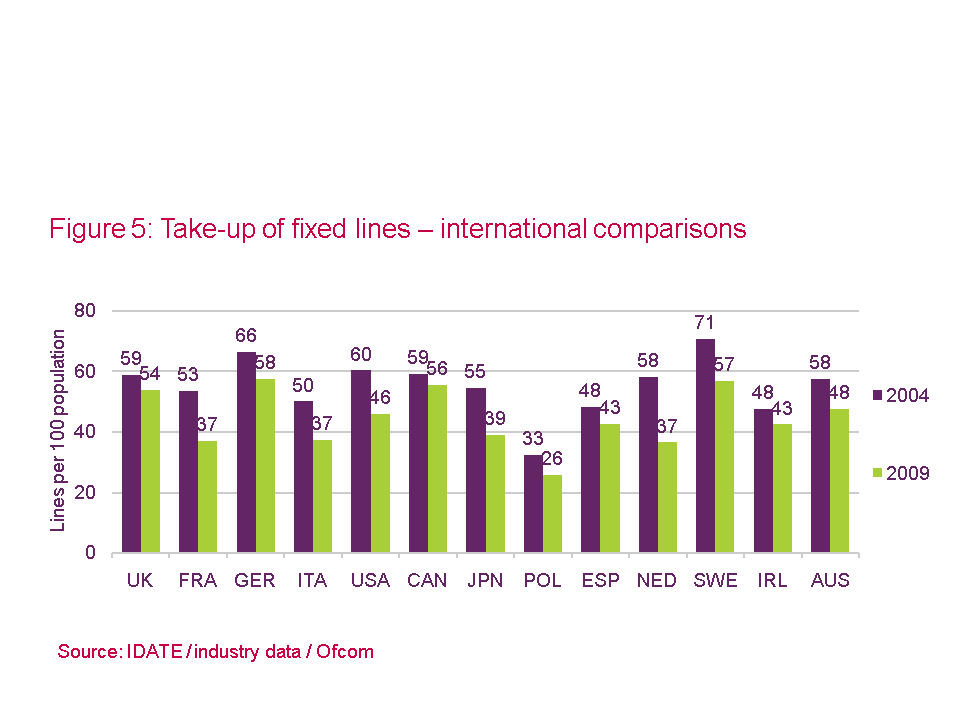The Consumer Experience 2010
Take-up of fixed lines - international comparisons
Figure 5 indicates that in the UK, as in all other comparator countries, there has been a fall in the number of fixed lines per head of population over the past five years.
These falls are due primarily to the increasing use of mobile, with an increasing number of households choosing to use a mobile for all of their telephony needs (and typically saving costs, compared to having both fixed and mobile connections). Our research finds that in Q2 2010 15% of households in the UK had a mobile phone connection but no fixed-line connection, up from 8% of households five years previously.
However, the decline in the UK has been less than in some other countries. There are two main explanations for this.
- DSL broadband (i.e. broadband delivered over the copper phone line) accounts for nearly 80% of fixed-line broadband connections in the UK, and the requirement to have a voice line in order to receive DSL broadband has constrained the growth of mobile-only households. In comparison, those countries where cable broadband has higher take-up (for example, the US) have seen a sharper fall in fixed-line connections. Similarly, in countries where 'naked DSL' is available and DSL broadband services are available without the requirement for a voice line (such as the Netherlands, Sweden and France), a higher proportion of households have opted to give up their voice line and use mobile and / or voice over internet protocol (VoIP) for all their phone calls.
- The pricing strategies of fixed and mobile operators also play a role in determining the extent to which fixed lines are substituted for mobile connections. BT is the only incumbent operator in Europe which does not have its own mobile network, so is more vulnerable to the threat from mobile, and has developed strategies to reduce this threat. For example, even its lowest-cost tariff now includes free evening and weekend calls to UK geographic numbers (subject to signing up to a 12-month rolling contract). In October 2008 BT launched BT Basic, which offers reduced line rental (at £13.50 for three months, including £4.50 worth of inclusive calls every month - compared to the standard line rental which starts at £9.49 a month) to customers who receive Income Support, Income-based Jobseeker's Allowance, Employment Support Allowance (income-based) or Guaranteed Pension Credit.
Chart

